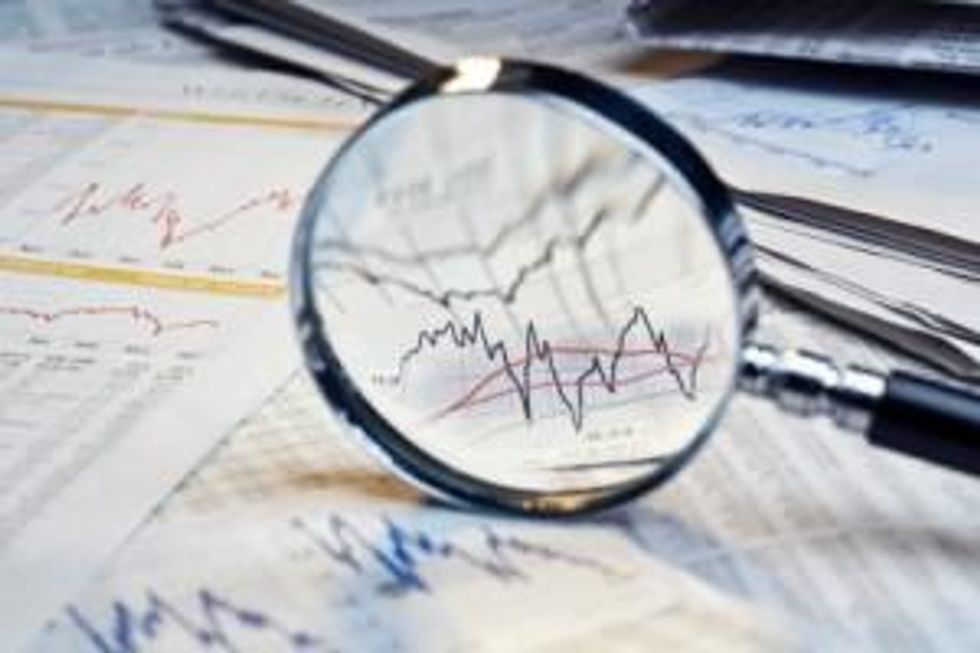Removal of Chinese Magnesium Export Tax Could Boost Sales
China has dropped its export tax on magnesium, spurring optimism that demand from car makers, the consumer electronics industry and steelmakers will increase. Such demand could in turn push producers of the metal to ramp up production.
China’s removal of a 10-percent tax on exports of magnesium ingot and magnesium alloy last week prompted CD International Enterprises (OTC Pink:CDII) to announce that the removal of the tax, effective January 1, is expected to have a positive impact on its sales and gross margins this year. And while the elimination of the tax may cause prices to fall, that in turn could attract more buyers to the market and encourage industry participants — such as car makers — to use more of the metal.
CD International said that since the export tax was introduced in 2008, traders have effectively managed to evade the tax by forcing it to price its magnesium lower than companies not subject to the tax. It said in a press release that the elimination will “level the playing field and make magnesium more profitable.”
“Prior to the implementation of this tax our margins were significantly higher and we believe there will be a return to a more normal export pricing environment as we no longer have to face potential unfair competition in the marketplace,” CEO James Wang said in the statement.
The removal of the tax follows a long-running dispute between China, Europe and the US over China’s export taxes. In 2009, the World Trade Organization found that the taxes constitute a breach of its rules; this ruling was upheld in January last year. But even as the metal appeared to be off China’s list of metals subject to the tax — alongside manganese and silicon — there was some initial confusion in the marketplace about what the impact might be.
Market participants said the removal could mean lower magnesium offer prices from sellers, and a Northwestern Chinese producer said he might cut prices to $3,000 per tonne compared to previous prices of $3,190 and $3,200, Platts reported in December. It also cited a trader as saying there might be a “surge in buying interest,” which in turn could push prices up.
While it is too early to determine a clear trend, there appear to be some signs that exports from China are in fact increasing. Metal-Pages reported that overseas buyers have started to place orders for the quarter, “encouraged” by the removal of the export tax.
“We have received three enquiries for prompt delivery, while there were no enquiries in the second half of December,” a Gansu-based trader told Metal-Pages.
Prices were somewhat lower than before the elimination of the tax, partly related to buyers already having excess magnesium stock in warehouses.
With China’s annual magnesium production amounting to over 85 percent of the world’s total output — 670,000 tonnes of the total 780,000 tonnes in 2011 — the removal of the tax will have an effect on both the magnesium market and other industries that use the metal.
CD International’s subsidiary, International Magnesium Group, has a production capacity of about 80,000 metric tons of pure magnesium ingots and 10,000 metric tons of magnesium powder per year at its six production facilities in China, making up well over a tenth of China’s total production.
“With the automobile industry forecasting record global sales, magnesium products no longer subject to this tax will become more competitively priced with other materials leading to a potential for increased sales for the entire industry,” CD International said in its press release. In other words, the metal will become cheaper for the company’s customers, which include the automotive and consumer electronics industries.
The United States Automotive Materials Partnership estimates that by 2020, 350 pounds of magnesium will replace 500 pounds of steel and 130 pounds of aluminum per vehicle, resulting in an overall weight reduction of 15 percent and fuel savings of up to 12 percent. According to General Motors (NYSE:GM), which is testing the use of magnesium sheets instead of aluminum sheets in cars, magnesium is about 33 percent lighter than aluminum, and so the overall effect would be reduced vehicle weight — and by extension lower fuel costs.
But magnesium is currently three to four times as expensive as aluminum, and that is holding car makers back from using it more extensively. GM hopes that if the automotive industry commits to using more magnesium, makers of magnesium sheets will in turn produce more, pushing down prices.
According to the US Geological Survey’s latest quarterly report, production in China through August was at about 430,000 metric tonnes, or 15 percent less than in the same period in 2011, partly as a result of plant closures amid a shortage of coke gas in the Shanxi and Shaanxi provinces, the main magnesium-producing areas of China, and partly due to heavy rain and hot temperatures.
But even as China’s latest move might help push prices lower, producers in other countries are making efforts to ramp up their production to reduce dependence on China. In South Korea, POSCO (NYSE:PKX) started production at its 10,000-metric-ton-per-year Okgye magnesium plant in the Gangwin province in October, and Israel’s primary magnesium producer said in 2011 it that it will increase production at its Sdom plant by as much as 10 percent. The plant has a capacity of about 34,000 tonnes per year.
Moreover, In Canada, West High Yield Resources (TSXV:WHY) is exploring and developing a property near Rossland, British Columbia, and estimates that it contains about 7.14 million tonnes of recoverable magnesium. Gossan Resources (TSXV:GSS) hopes to start production at its magnesium project in Inwood, Manitoba, in 2016 and estimates that the project could have an output of 80,000 tonnes of magnesium per year for about 30 years.
Those efforts could in the long run help restore balance in global production, and as a result stimulate prices and demand for magnesium.
Securities Disclosure: I, Ragnhild Kjetland, hold no direct investment interest in any company mentioned in this article.

